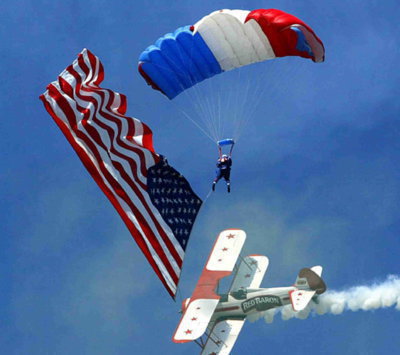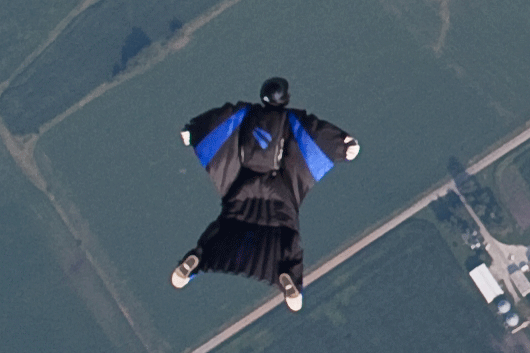Quote
airtwardo said:
...I believe there should be separate categories at the collegiate nationals for both military and civilian schools...
Now THAT would more fairly represent the skills and accomplishments of these collegiate athletes in regard to the respective 'playing fields' they train on.
Interestingly, those separate civilian awards did exist back in the late 80s/early 90s...for just a few years (not sure when the awards were actually eliminated).
I was chair of the the collegiate committee at the time and we put forth the motion at the request of several civilian competitors. I purchased the plaques and arranged with Bill Ottley for USPA to maintain them. Bill Wenger actually found the money to pay for the civilian awards. I recall the new awards were eliminated, again at the request of civilian competitors, because they were not happy with the way it worked. The civilians still had to beat the military competitor's performance to be eligible for the "overall collegiate champion award" (and the scholarship $...). Anyway, it's been tried though maybe the problem was in execution rather than the idea itself...
Not to drift too far from the thread point Pat, but since you were involved at the time...what type of changes were done back then, and do you have any ideas pertaining to implementing a more contemporary set of rules and standards that might satisfy the overall needs of both the civilian and military school athletes?
I find it a bit disconcerting to read in this thread that things haven't changed much over the years as far as civilian competitors going to the nationals knowing for the most part the top spots will be AFA and USMA...and the challenge is really for a 4th place honorable mention.
I remember we looked at it like the Olympic track & field athletes must have when they went against the Russians way back when.
~ If you choke a Smurf, what color does it turn? ~
pms07 3
Well, to be accurate many civilian individual competitors and teams have won or placed in numerous events at collegiates over the years. Some (okay, maybe a few) of those had at least limited sponsorship in one form or another, even some world class coaches on occassion, etc. Not to the level the military academies have of course and the deck is clearly stacked in favor of AFA or USMA. I was a poor college student (and high school) skydiver that didn't go to collegiates because of the cost so understand the challenge.
I think the USPA needs to examine who they they want to attract as competitors, then figure out how best to do that. Add to that making the events as similar to the Nationals as possible within the limits of experience and safety.
Rolling the collegiates into Nationals is no answer. We might as well just eliminate the meet as we would get few competitors and they'll be lost in an environment that focuses more on the open class events and experienced folks.
Feedback on separate categories has been mixed in the past but maybe that is the way to go. If that''s what the civilian competitors clearly want, give it to them.
Given the typical size of the meet, you might end up with lots of classes/events, many having very few competitors. The year I was meet director I think we had 4 classes in 2 individual events plus overall in each, 2 classes RW and one in CRW. Trophies or medals to 3rd place in each for a total, I think, of 66 medals. I know it's public math but all that with just over 100 competitors. Further break that out into military and civilan classes and you probably have more awards than competitors... ![]() Still, maybe worth trying to see if there are enough competitors to support the events. Or you could break it up like Nationals RW; intermediate, advanced, open, where competitors gets to pick their class and compete against all, or not. Exclude "sponsored" teams from certain classes if you ccan figurre out how to do that.
Still, maybe worth trying to see if there are enough competitors to support the events. Or you could break it up like Nationals RW; intermediate, advanced, open, where competitors gets to pick their class and compete against all, or not. Exclude "sponsored" teams from certain classes if you ccan figurre out how to do that.
Anyway, I might try to attend the collegiate meet this year and get some feedback. I’m confident Bill Wenger will already be doing that however. And for those that don’t know Bill, he was a collegiate competitor, coach and meet director many years before he was affiliated with AFA. He competed against AFA and USMA back in those days so understands the issue…perhaps much better than a few that have posted here…




Share this post
Link to post
Share on other sites